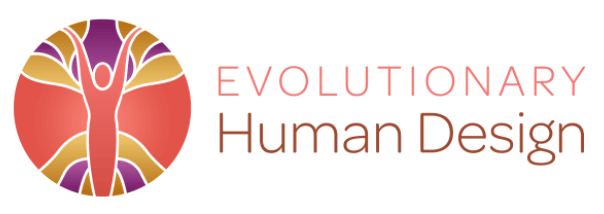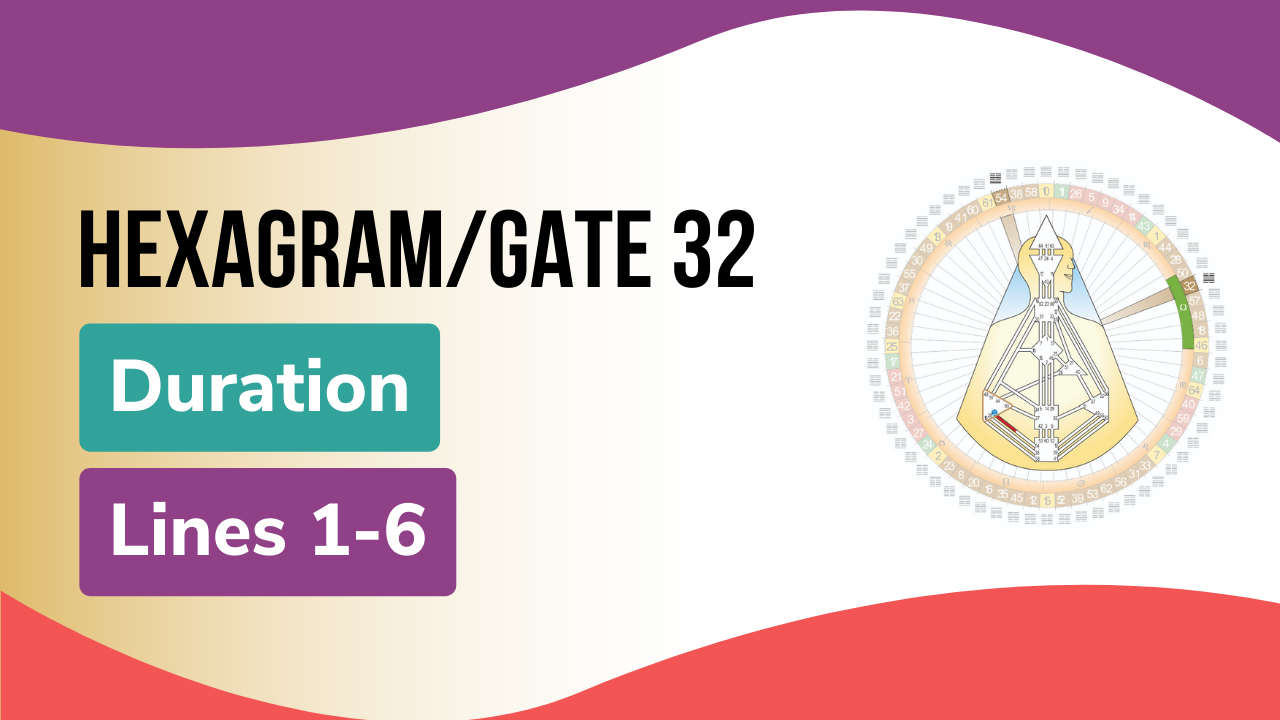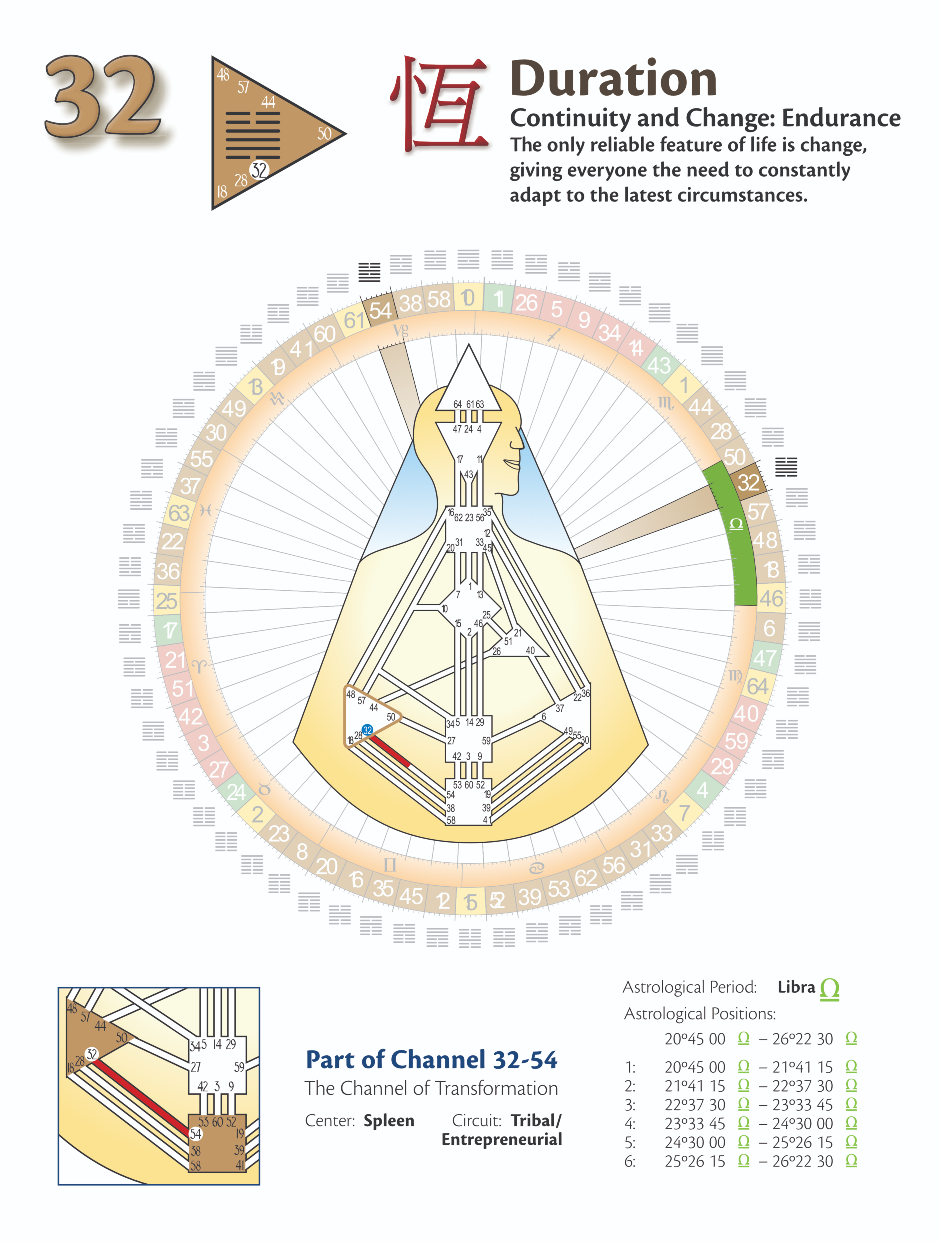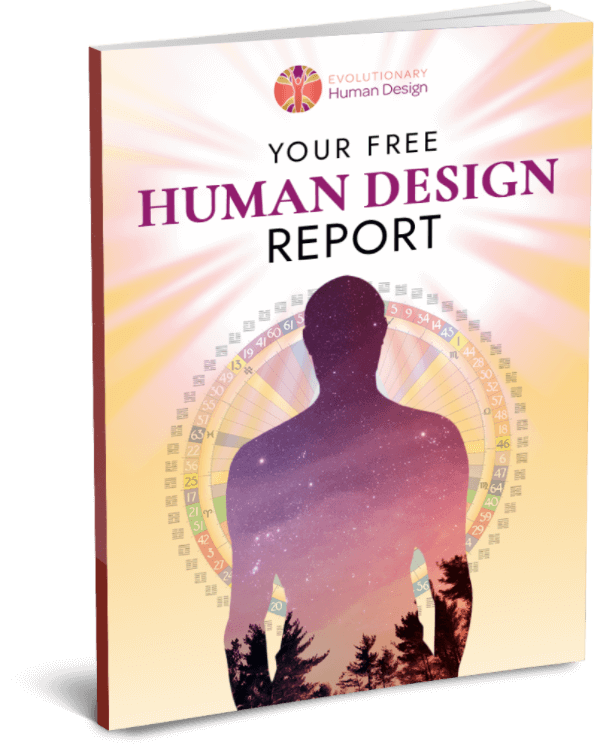As we move through the Human Design Gates, we see that the sun has moved out of Gateway 57, the gateway of individual intuition, and now moves on into the 32, which is a very different gateway. If the 57 has everything to do with our personal intuition, the 30 do has a lot to do with following our nose, our sense of instinct.
What do we mean when we say that something “smells fishy,” or that it “smells like rain,” or “smells like money”? We’re talking about instinct. It’s a fascinating thing, instinct. It’s definitely not logical, but it’s something we all know we have; this ability to recognize where things are going.
Being watchful is a common theme with many Human Design gates. But it is especially key here. Gate 32 is called “Duration,” so one of its major themes is keeping our finger on the pulse of continuity and change, figuring out what it is that’s really going to endure the test of time. This gateway gives us the potential perspective to see what it is that’s really valuable, what’s really worth our time, interest, and energy for the long haul.
Let’s see how this plays out line by line:
FIRST LINE: BEING CONSISTENT
The first line is called “Being Consistent: Lasting results require a constancy in your attitude.” In order to put your energy into things that will stand the test of time, you need endurance and discipline. Both of which require consistency.
Adapting your lifestyle to change is a process requiring intent and attention to each moment. When things are not working out for us, we have a choice: do we go down with whatever it is that’s failing, or do we stay in the moment, shift our attitude and recognize our failure as an opportunity to modify what we’re doing?
This is one of the hallmarks of the entrepreneur: the idea that it takes a thousand failures to get to a single success. It’s the ability to remain consistent, to know that there’s something great here if you can have the endurance to make it work. If it’s not working, modify, rearrange, do something completely different. But if you throw in the towel and give up, that’s the true failure.
SECOND LINE: AVOIDING EXTREMES
The second line called “Avoiding extremes: Holding a steady course.” There’s a potential here to fiddle around with things that are already working perfectly. The second line has a tendency to lose that sense of steadiness and trust. You can jump to the conclusion that something needs fixing, needs tweaking, needs rearranging somehow. However, there’s no need to fix what doesn’t need fixing.
The Achilles heel for the second line is getting overwhelmed by other people’s input. People will tell you to follow their way of doing things, to follow their approach, that your way won’t work, etc. And second lines can get bogged down by this. But you have a natural approach to things that might differ from those around you. Trust it.
This is the key here for second lines: Your natural approach to relating with changes brings benefit for everyone. Everybody benefits from the second line just proceeding in a very natural, perhaps even unsophisticated way.
THIRD LINE: WITHSTANDING
Third lines always have a touch and go approach to things. They’re the first ones in. They’re the innovators, the explorers, the pioneers. And here the third line is called “Withstanding: Using your inner guidance when distracted by change.”
Your steady or casual approach to taking on changes determines your ability to adapt to them. Change is the only constant in life, and one of the greatest gifts of all third lines is adaptation, your ability to adapt to changes. The key to this ability to adapt is clarity. During all times of transformation, you want to remain clear on your inner, enduring intentions.
There is a tendency to get distracted here, to make problems out to be bigger than they are. And this can limit your alertness at times of change. So, it’s important to stay present, stay alert, stay watchful, and trust your inner guidance above all else.
FOURTH LINE: BEING REALISTIC
The fourth line is the influential line. It always involves connecting with and influencing other people in their lives. And the fourth line here is called “Being realistic: Reevaluating your needs.” Fourth lines can very easily get tangled up in everybody else’s suppositions, ideas, or constraints. But it is through being true to your own overall goals that you can gain the confidence you need when challenged by changes.
You may see little disturbances along the way, but the overall goal is constant. You may have to make adjustments, redefine the product, or the contract or whatever it is that you’re working on, but it’s about staying in that constant presence, and remaining aware about the bigger picture.
Your inner optimism endorses your own principles and adaptability in times of change and your inner practicality adapts your principles to the needs of any challenging situation. Again, we come back to attitude here, and the importance of sticking with it and keeping your finger on the pulse, win lose or draw. Yes, you will encounter challenges, you might need to readjust your approach, but you have the inner fortitude to do that and keep going.
FIFTH LINE: COMPLYING
The fifth line is the leadership line, and here it’s called “Complying: Staying aligned with changes.” The fifth line can see afar. You can see how things are evolving, but there’s always this projection field, this input that says “you’re supposed to do this, you’ve got to do that, you should pay attention over here,” and so on. So, you have to stay constant in your own perception of the way things are.
The key is to stay aligned with changes and be really watchful of what is happening. You need to interact creatively in all of life’s changing and challenging situations. Which is to say, rather than looking for pie in the sky solutions, you need to look for practical things to implement when there’s a big change taking place.
Your shifting sense of the nature of change brings easy adaptation to all phases of life. You have the ability to watch transformations take place and recognize all the different features needed to facilitate change. However, there is also the potential for impatience.
Your impatience with life’s timing makes you inventive in finding ways to force the pace. This is not necessarily a good or bad thing. Sometimes you have to force the pace. Circumstances change and you realize you have to move things along. And this can work for you as long as you stay aligned with changes. Stay current, present, and alert.
SIXTH LINE: WITNESSING
Often, the sixth line oversees the whole hexagram, observing the nature of the changes taking place. And the line here is called “Witnessing: Impassively observing your world even as you move in it.” And this line has the potential to be highly meditative.
You are constantly attuning with the changes of the world going on around you. The question is, “Are you going to engage? Are you going to be involved or not? Or is it just a call to be meditative and alert as everything changes around you?”
You have a need to accept change or else live in fear of being continually overwhelmed by life. Life brings on change. More and more these days we’re having to make big decisions. We evaluate circumstances because everything is changing. We’re having to learn to stand on our own feet more than ever before, to trust in our own senses, to trust in our own abilities. So here you have a need to accept change, because it’s going to happen anyhow.
So, the role of the 32 is to be aware of what we provide. To figure out how we set things in place that withstand the test of time, that give people a sense of connection and presence in life, the sense that they’re included and valued.
There is fear associated with many Human Design Gates in the Spleen Center, and the fear for the 32 is the fear of failure. “It’s not going to work. I’m not going to manage. It’s all going to be over one day. And what’s the point?” This is why we have to stay present. Sometimes, we’re going to fail. We’re going to feel overwhelmed by situations. But the key to fulfillment in life is being present, to snap back into the present tense and take stock of this moment in time. This reality. Then we have the opportunity for complete revaluation, to endure all the changes that are taking place.
That’s the wrap up for Human Design 32 and we’ll check in again soon. In the meantime, if you’d like to learn more about Human Design Gates, and to discover how your own Design informs and shapes your life, get your Free Human Design Report today.




